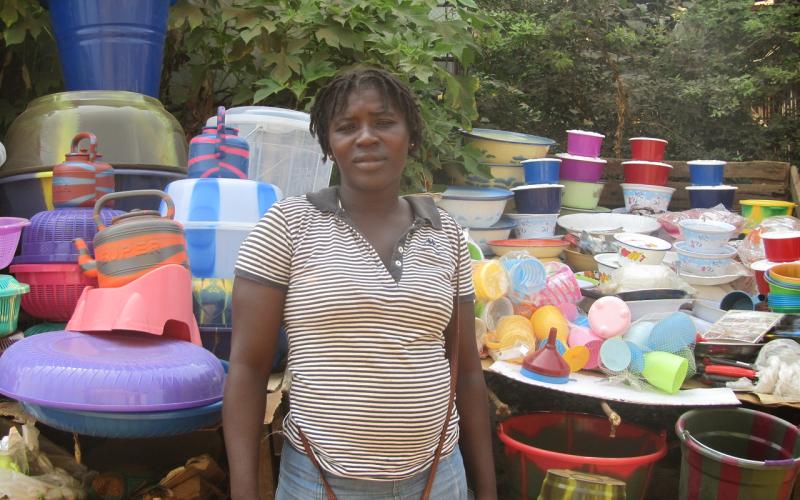
The World’s seventh largest country by population, Nigeria is the most populous country in Africa with well over 180 million people comprising several distinct ethnic groups, each with their own traditions and unique cultures. Prominent groups include the Yoruba from the Southwest, the Igbos from the Southeast, and the Hausa/Fulani from the North.
The Hausa/Faluni have not had a fair share of democratic governance in the last five to six years due to a reign of terror in their region. In 2011, a violent militia group sprang up in the Northeastern part of the country and formally denounced any ties with the federal government of Nigeria and its Western belief system. The militia strongly opposed Western influence and education. Referring to Western education as “haram,” which simply means taboo, the group has been consequently tagged Boko Haram, which means “Western education is a taboo.”
Boko Haram forcefully unseated local council administrators and ruled with their version of Sharia law. They established caliphates in more than thirteen local council areas in the northeastern part of the country, crippling economic, social and political activities. The group burnt houses, churches and mosques that oppose their belief system.
This reign of terror in the northeast region led to Nigeria’s worst internal crisis in history, recording millions of deaths, destruction of properties, and the displacement of millions of people. Internal displacement on a large scale became a grave situation within Nigeria. The National Emergency Management Agency (NEMA) of Nigeria reported 2.1 million internally displaced persons (IDPs) at the beginning of 2016. These people represented more than 300,000 households in the northern part of the country making it the highest displacement incidence in Africa.
The Nigerian government, with the aid of international organizations and other sovereign governments, have made progress in recent times in curbing the activities of the Boko Haram, and the Nigerian military has made tremendous progress in recapturing the towns, villages and local councils previously controlled by the sect. However, the aftermath of the reign of terror that Nigeria has endured is still evident in the regions where the Boko Haram once dominated.
The challenges of rebuilding homes and houses of those who had been affected by this group is a vital task for the government, non-profit organizations, and private individuals who wish to aid in the recovery. Africa’s richest man, Aliko Dangote, has donated millions of dollars to help with the IDP situation, and the Bill and Melinda Gates Foundation has given about 1 million dollars. International donors have also channeled funds by giving millions of dollars to Nigerian agencies and government, adding to the billions of Naira (Nigeria's currency) officially budgeted by the Nigerian government and its institutions.
Yet, there are still a significant number of malnourished IDPs, most of them children. According to The United Nations Children’s Fund (UNICEF), there were about 100,000 cases of child malnutrition in the northern Nigeria in 2016. These numbers bring in to question the efficiency of the aforementioned aids and the effectiveness of the strategies employed in the utilization of these funds to aid the IDPs in the country.
It is imperative to consider different strategies that might be more efficient, especially in reintegrating these individuals back into the society. Apart from food, drugs, and shelters, empowerment is critical to ensure a sustainable action plan that will permanently resolve the issue of internal displacement in Nigeria.
One such strategy for a solution to IDP challenges is youth and women empowerment. Programs geared towards youth empowerment and self-employment should be introduced by governmental and non-governmental organizations to IDPs for the purpose of reducing idleness among children and women; such programs would empower IDPs to fend for themselves. These programs should be organized in all IDP camps in the country, providing recipients the avenue to develop themselves and skills in vocational and creative enterprises such as arts and design, fashion, media, and information technology. These programs would set things in motion towards achieving a more successful and sustainable recovery process for IDPs in the country.
Displacements of any sort have a psychological effect on the mind of the displaced. Therefore, another important strategy to adopt in the reintegration plan is to introduce a mental health recovery action that will help the IDPs reintegrate properly into the society. The services of psychologists and other related mental health experts can be employed to help people forget cope with their experiences while looking forward to a better tomorrow.
By Abayomi Ojo
Image: © HAYE OKOH 2017 ALL RIGHTS RESERVED - Used with permission
References:
http://nema.gov.ng/internally-displaced-persons-in-nigeria-rise-to-2-1-million/

